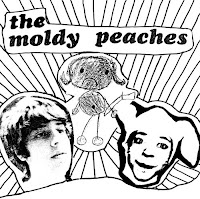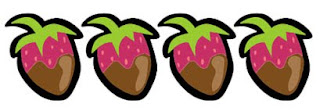Sherman Alexie tells the story of Junior, a budding cartoonist growing up on the Spokane Indian Reservation. Determined to take his future into his own hands, Junior leaves his troubled school on the rez to attend an all-white farm town high school where the only other Indian is the school mascot. Heartbreaking, funny, and beautifully written, The Absolutely True Diary of a Part-Time Indian, which is based on the author's own experiences, coupled with poignant drawings that reflect the character's art, chronicles the contemporary adolescence of one Native American boy as he attempts to break away from the life he thought he was destined to live.
I really don't know how to write a review that will do this book justice. All I know is that I laughed, I cried, then I laughed some more. And this review will be my feeble attempt to convey the genius of Sherman Alexie's writing. While this is my first Alexie book, it most certainly will not be my last.
Junior is a Spokane Indian living on a reservation who takes a huge risk by transferring to the white high school twenty-two miles away from the "rez." This takes a lot of courage for a boy, who is already known around the rez as a "retard" and a "faggot". Most of that has to do with the brain damage that he endured as a child, the subsequent seizures that would often plague him, and his general awkwardness. So already he's an outcast. When he transfers to the new school he isolates himself even further because his tribe views him as a traitor. Add to that alcoholic parents and a best friend turned frienemy and Junior is about the loneliest soul you could imagine. But he keeps trucking on.
Through it all, the good and the bad, Junior never loses his sense of humor. I find that heartening and hopeful. When faced with poverty, death, prejudice, and bullying Junior still manages to find humor in such tragic circumstances. Junior even verbalizes this saying:
". . . I realized that, sure, Indians were drunk and sad and displaced and crazy and mean, but dang, we knew how to laugh. When it comes to death, we know that laughter and tears are pretty much the same thing."
As a white person, I cannot say whether or not
The Absolutely True Diary of a Part-Time Indian accurately portrays the Native American experience however, Debbie Reese, a Nambe Pueblo Indian woman and assistant professor in American Indian Studies at the University of Illinois at Urbana-Champaign, whose
blog discusses "Critical perspectives of indigenous peoples in children's and young adult books, the school curriculum, popular culture, and society-at-large", praises the book stating:
"There's a lot in the book that I really like because I connect with the character, the setting, the experiences... It is real and brutally honest.
If Debbie finds it a valid representation of the Native American experience, I'm certainly going to believe her considering her heritage and her educational background. I encourage you to check out Debbie's blog if you're at all interested in the representation of Native Americans in YA (or Children's) lit. Her blog is a wonderful place to get recommendations for accurate portrayals of Native Americans.
A lot of the tragedy that befalls Junior is, in some way, related to one of the harsh realities of life on the rez: alcoholism. As I understand, this is a huge problem among Native Americans. It was interesting the way Junior described having an alcoholic father and how that compared to his white classmates' fathers:
"I mean, yeah, my dad would sometimes go on a drinking binge and be gone for a week, but those white dads can completely disappear without ever leaving the living room. They can just BLEND into their chairs. They become their chairs. . . There are white parents, especially fathers, who never come to school. They don't come for their kids' games, concerts, plays, or carnivals." " I realize my parents are pretty good. . . they make sacrifices for me. They worry about me. They talk to me. And best of all, they listen to me."
So while his parent's aren't perfect and as much as Junior may envy some of the advantages of his white classmates, he still understands, appreciates, and values his family and his community.
It's really difficult for me to articulate how amazing this book is. On one hand it's heartbreakingly sad, on the other it is humorous and uplifting. It just goes to show that we're not all just one thing. Junior, isn't just an Indian, this isn't just another YA book. This is something special.

I realized that, sure, I was a Spokane Indian. I belonged to that tribe. But I also belonged to the tribe of American immigrants.
And to the tribe of basketball players.
And to the tribe of bookworms.
And the tribe of cartoonists.
And the tribe of chronic masturbators.
And the tribe of teenage boys.
And the tribe of small-town kids.
And the tribe of Pacific Northwesterners.
And the tribe of tortilla chips-and-salsa lovers.
And the tribe of poverty.
And the tribe of funeral-goers.
And the tribe of beloved sons.
And the tribe of boys who really miss their best friends.
It was a huge realization.
This review is in celebration of
Banned Books Week. This book has been banned from many schools most recently by a school in Missouri. Check out the story
here.















































